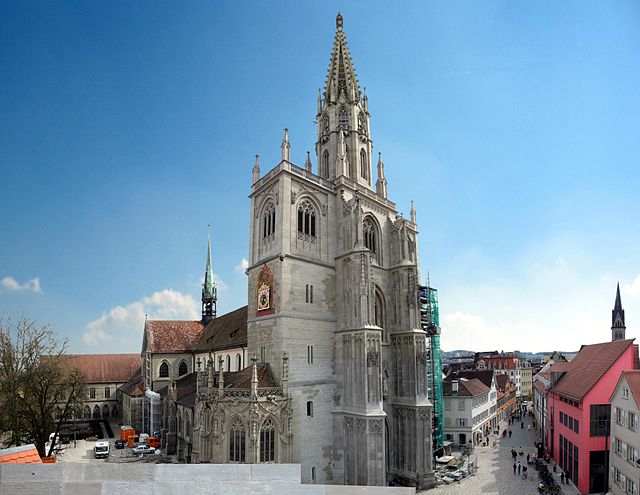The Council of Constance was an ecumenical council of the Catholic Church that was held from 1414 to 1418 in the Bishopric of Constance (Konstanz) in present-day Germany. The council ended the Western Schism by deposing or accepting the resignation of the remaining papal claimants and by electing Pope Martin V. It was the last papal election to take place outside of Italy.
Council of Constance
Emperor Sigismund, his second wife, Barbara of Celje, and their daughter, Elizabeth of Luxembourg, at the Council of Constance
Bishops debating with the pope at the Council of Constance
Imperia, erected in 1993 to commemorate the Council
Prince-Bishopric of Constance
The Prince-Bishopric of Constance was a small ecclesiastical principality of the Holy Roman Empire from the mid-12th century until its secularisation in 1802–1803. In his dual capacity as prince and as bishop, the prince-bishop also administered the Diocese of Konstanz, which existed from about 585 until its dissolution in 1821, and whose territory extended over an area much larger than the principality. It belonged to the ecclesiastical province of Mainz since 780/782.
The Bishopric of Constance lying astride the western end of Lake Constance
Image: Konstanzsiebmacher
Upper Rhenish dioceses of Constance, Straßburg, Speyer, and Worms, c. 1801
Constance Cathedral








